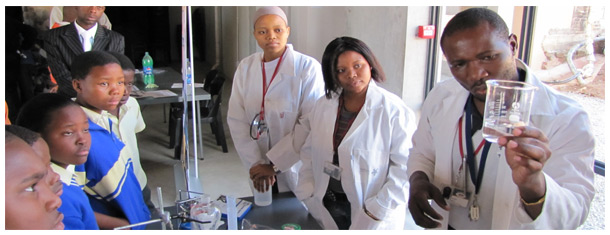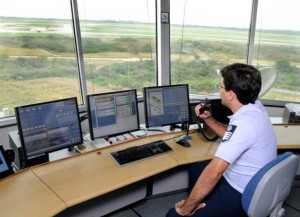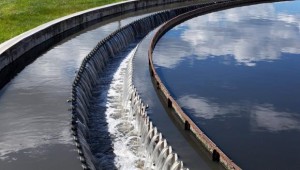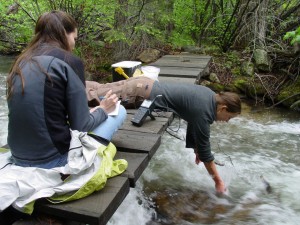10 Scarce Skills in South Africa

A scarce skill is a qualification or job for which there are too few available people in South Africa to do the job. Studying for a scarce skill, providing it is suited to you, would not only mean helping your country, but also helping yourself! Scarcity in a specific qualifications or job can be attributable to the fact that the occupation is newly created and therefore very few people have studied in that direction. Not only will you be able to find a job more easily, but you will most likely be paid better and progress to the top of your career path more easily, because employers require these skills. Also, some qualifications are universally scarce, which means that international opportunities will be available.
1.Air Traffic Controllers:
Air traffic controllers are people trained to maintain the safe, orderly and expeditious flow of air traffic in the global air traffic control system. The position of air traffic controller is one that requires highly specialized knowledge, skills, and abilities.
2.Water Engineers:
Engineers who specialise in water-based projects; many have a civil engineering or environmental background. Water engineers undertake a wide range of technical and non technical duties in their role of supplying, managing and maintaining clean water and sewerage/waste water services and preventing flood damage.
3.Process Control Technicians: Process technicians working in manufactured mineral products industries control the process operations of the plant and equipment used to produce ceramic, clay, glass, cement and concrete products such as bricks, tiles, pottery, cement, lime, paving blocks and glassware. They perform temperature validation and verification testing on pasteurization processes and product. Control and monitor pasteurizer settings to insure all products receive proper cook and provide technical support for the operations department through process monitoring and data collection.
4. Mining Engineers and Technicians:
Mining technicians work as part of the preparation, exploration, development, maintenance, or operations segments of mining teams. They might assist metallurgists and chemists by testing rock samples and helping locate natural resource deposits all over the world. They may also work with environmental engineers to ensure that safety standards and government regulations are being followed in the mines, or they might assist Industrial Engineers by testing the air quality underground for traces of poisonous gases. The career of a mining technician varies according to the individual specialization and the demands of markets.
5. Legislators:
Legislators develop policies relating to the environment and education to passing laws that protect the community. Legislators affect people’s lives every day. They are elected by the voters they represent to frame policy and pass laws at the local, state or federal level. As members of the legislative, or lawmaking, branch of government, legislators work on making changes to existing laws or passing new legislation based on their constituents’ needs. They often serve on committees that oversee various aspects of government policy; most laws are developed by these committees and then voted on by the entire legislative body.
6. Geologists and Geophysicists:
A geologist is a scientist who studies the solid and liquid matter that constitutes the earth as well as the processes and history that have shaped it. Geologists usually engage in studying geology. Geophysicists on the other hand combine the sciences of geology and physics to locate resources such as oil and gas, and to predict natural disasters like earthquakes. They employ the principles and techniques of geology, physics, chemistry, mathematics, engineering and other scientific disciplines to perform tests and determine the structure and composition of the earth. Exploration geophysicists use this understanding to look for deposits of petroleum and valuable minerals. Sometimes called geophysical prospectors, they use seismic techniques to look for possible oil and gas deposits and measure and chart the sound waves created by explosions.
7. Financial Analysts:
A financial analyst conducts quantitative analyses of information affecting investment programs of public or private institutions. They also analyze financial information to produce forecasts of business, industry, and economic conditions for use in making investment decisions and assemble spreadsheets and draw charts and graphs used to illustrate technical reports, using computer.
8. Economists:
Economists study how societies and markets distribute resources, such as raw materials, land, human labour and capital in order to create goods and services. Economists are employed by a wide variety of entities, including government agencies, investment houses, banks, think tanks, non-profit groups and large corporations. Common duties of economists include collecting data, analyzing reports, utilizing modelling techniques, studying forecasts and producing reports.
9. Building Architect:
Architects work in the construction industry and are involved with designing new buildings, extensions or alterations to existing buildings, or advising on the restoration and conservation of old properties. They can work on individual buildings or on large redevelopment schemes, and can be responsible for the design of the surrounding landscape and spaces. Architects work closely with their clients and users to make sure that projected designs match their needs and are functional, safe and economical. They usually control a project from start to finish and work with a number of construction professionals, including surveyors and engineers, producing drawings and specifications that the construction team works to.
10. Environmental Engineers:
Environmental engineers or ecological engineers respond to the challenges posed by a growing population, intensifying land-use pressures, rapidly evolving technology, and increasing government regulations. The environmental engineer must develop technically sound solutions within the framework of maintaining or improving environmental quality, complying with public policy, and optimizing the utilization of resources. The engineer provides system and component design, serves as a technical advisor in policy making and legal deliberations, develops management schemes for resources, and provides technical evaluations of systems.
Mbali Radebe













